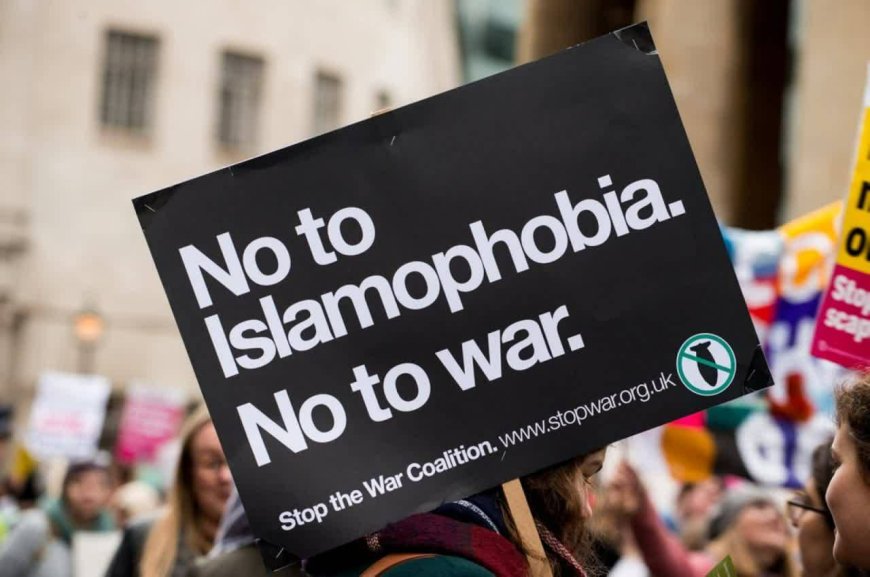The Israeli War on Gaza and the Surge of Islamophobia in the UK
In today's geopolitical landscape, a troubling trend has emerged that demands urgent attention and introspection. The Israeli military offensive in Gaza has not only reignited long-standing tensions in the Middle East but has also had reverberations far beyond the region, particularly in the United Kingdom. Against the backdrop of this conflict, there has been a distressing escalation of Islamophobia in Britain, shedding light on the pervasive discrimination faced by Muslims in the country.

The Muslim community worldwide has been grappling with a disturbing rise in Islamophobic sentiments, bolstered by the support of extreme right-wing factions across the globe. Muslims are increasingly finding themselves at the receiving end of persecution solely based on their religious identity, with Europe and America serving as prime examples of this concerning trend.
The Plight of Muslims in the United Kingdom
Over the past few decades, Islamophobia has posed a significant challenge for both individuals and governments in Western nations, particularly in the United Kingdom. The aftermath of events such as September 11 exacerbated existing prejudices, leading to a multifaceted manifestation of Islamophobia. Despite constituting a sizable portion of the population, Muslims in the UK—numbering over 3.4 million individuals, roughly 5% of the populace—continue to face systemic barriers hindering their full societal participation. Shockingly, hate crimes targeting Muslims have surged, with statistics revealing that more than half of recorded hate crimes in the United Kingdom and Wales between 2017 and 2019 were directed at Muslims.
Marginalization of Muslims in the UK
Regrettably, Muslims residing in the United Kingdom have been relegated to second-class citizenship across various facets of life, a consequence exacerbated by the toxic rhetoric propagated by politicians and media outlets. Legal frameworks targeting Muslims have further entrenched Islamophobia, fostering a culture of discrimination and exclusion within English society.
Post-Gaza Conflict Surge in Islamophobia
The recent conflict between Hamas and the Israeli government has triggered a disturbing wave of Islamophobia in the UK, culminating in acts of harassment and intimidation against Muslims. Those expressing solidarity with the Palestinian cause have been unjustly labeled as terrorists, underscoring the toxic environment that has enveloped British society. Alarming data from the charity "Tell MAMA" revealed a staggering increase in anti-Muslim incidents following the onset of the Gaza conflict, with a record 2,100 cases reported between October 7 and February 7—a 600-case surge compared to the corresponding period in the previous year.
Politicians Fanning the Flames of Islamophobia
Recent reports have highlighted a concerning rise in British politicians espousing anti-Islamic sentiments, perpetuating a climate of hostility and division. Notable figures, such as Anderson from the Conservative Party, have made inflammatory remarks that only serve to fuel anti-Muslim hatred. The response from London Mayor Sadiq Khan underscores the gravity of such rhetoric, denouncing it as racist and Islamophobic. This condemnation led to Anderson's expulsion from the Conservative Party, reflecting a growing recognition of the detrimental impact of Islamophobia in political discourse.
Upholding Islamophobia Under the Guise of Free Speech
Presently, Muslims in Western nations, including the United Kingdom, are facing derogatory treatment under the guise of free speech as extremist factions seek to vilify and ostracize Muslim communities globally. The imperative distinction between legitimate critique, lawful protest, and hate speech is being blurred, with Western countries failing to uphold the principles of justice and inclusivity.
Conclusion
The systemic discrimination against Muslims, exacerbated by recent events such as the Gaza conflict, demands a concerted effort to address and rectify the pervasive Islamophobia prevalent in British society. The complicity of the British government in perpetuating structural discrimination must not be overlooked, necessitating a comprehensive reassessment of policies and attitudes that perpetuate division and injustice. It is incumbent upon all members of society to stand against bigotry and intolerance, fostering a climate of respect and inclusivity for all individuals, irrespective of their background or beliefs.













































